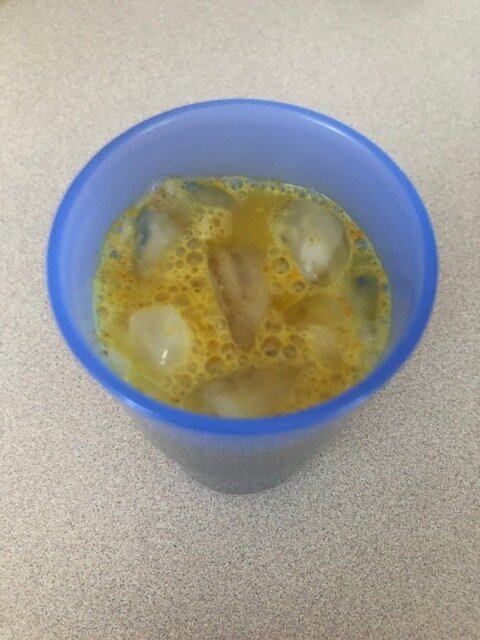Immune-Boosting Teas: Do They Work?
It is that time of year when fall allergies are kicking it, and cold and flu season is coming up. If that wasn’t enough, it is 2020 and we’re all concerned about the COVID-19 pandemic. Back in late winter/early spring when the virus was in full swing, many tea companies were coming out with or pushing their already existing “immune-boosting” teas. I imagine we will see another surge of advertising as flu season starts (and case numbers are rising in some places). Today I’m going to answer the question we’re all wondering: do these teas work?
Supporting a Healthy Immune System
First, let’s talk about what has been proven to help keep your immune system strong. The best way to keep your immune system healthy is to eat a balanced diet, get adequate sleep, and manage your stress. It is also important to do these things all year long, not just during flu season or during a pandemic. Easier said than done, I know, but you and your health are worth the time and effort.
According to the Academy of Nutrition and Dietetics, there are a few specific nutrients that may help with your immune system. These include: beta-carotene (Vitamin A), Vitamin C, Vitamin D, zinc, probiotics, and protein. As far as herbs, the Academy stresses that no one food or supplement can prevent illness, and to check with your healthcare provider before starting any supplements or medications. I would also extend this to drinking copious amounts of any immune-boosting teas.
Vitamin C
Vitamin C has long been praised as the best vitamin for our immune systems. However, it it doesn’t have that benefits that you might think. Rather than preventing you from getting sick, it may help lessen the duration and symptoms of illness. Citrus fruits are the most well known source of Vitamin C, and it is very common to see dried lemons or oranges or their rinds in immune-boosting teas. Fireweed is another common ingredient in immune-boosting teas that is high in Vitamin C. According to the Canadian journal Discover Phytomedicine, fireweed has four times the Vitamin C, along with 90 times the Vitamin A (another important nutrient for the immune system), compared to oranges.
That sounds great, but the problem is the Vitamin C is a heat-sensitive vitamin. The Academy of Nutrition and Dietetics recommends steaming or microwaving vegetables for short periods of time to get the most nutrients. I think it is safe to assume hot tea runs the risk of destroying the Vitamin C in the tea ingredients as well.
Other Tea Ingredients
Echinacea is probably the most commonly used ingredient in immune-boosting teas. Echinacea is an herbaceous flowering plant also known as cornflower, and it contains many different properties that help with immunity. First, alkamides have anti-inflammatory and immune-modulating effects. Polyphenols (AKA phenolic compounds) are plant substances that are believed to be responsible for the wound-healing actions. Finally, the carbohydrate arabinogalactan activates macrophages (a type of white blood cells), while other carbohydrate compounds may have anti-inflammatory properties.
Elderberry is another fairly well-know immune-boosting supplement that can be included in tea. Studies state that elderberries have chemical compounds called anthocyanins (a type of flavonoid) which have been shown to boost immunity.
Turmeric/curcumin is the newest trending “superfood,” and it may help improve immune function. It’s anti-inflammatory properties are most studied, but it may also have a role in immune system regulation.
So What’s the Tea?
So what’s the final verdict? Many of these immune-boosting teas have ingredients that may help prevent you from getting sick, or at least decrease the amount of time you’re sick and the severity of symptoms. But you shouldn’t just be drinking tea to keep yourself from getting sick. You should be eating well, getting enough sleep, and washing your hands (plus wearing mask and social distancing during this pandemic).
References
Catanzaro M, Corsini E, Rosini M, Racchi M, Lanni C. Immunomodulators Inspired by Nature: A Review on Curcumin and Echinacea. Molecules. 2018; 23(11):2778.
Hawkins, Jessie, et al. “Black Elderberry (Sambucus Nigra) Supplementation Effectively Treats Upper Respiratory Symptoms: A Meta-Analysis of Randomized, Controlled Clinical Trials.” Complementary Therapies in Medicine, vol. 42, 18 Dec. 2018, pp. 361–365., doi:https://doi.org/10.1016/j.ctim.2018.12.004.
“How to Keep Your Immune System Healthy.” Edited by Esther Ellis, EatRight, Academy of Nutrition and Dietetics, Mar. 2020, www.eatright.org/health/wellness/preventing-illness/how-to-keep-your-immune-system-healthy.
“How Vitamin C Supports a Healthy Immune System.” Edited by Marisa Moore, EatRight, Academy of Nutrition and Dietetics, 22 Mar. 2019, www.eatright.org/food/vitamins-and-supplements/types-of-vitamins-and-nutrients/how-vitamin-c-supports-a-healthy-immune-system.
Rogers, Robert Dale. “Fireweed – a Treasured Medicine of the Boreal Forest.” Discovery Phytomedicine, vol. 1, 2014, pp. 10–15., doi:http://dx.doi.org/10.15562/phytomedicine.2014.16.
NOTES:
I am not yet a Registered Dietitian and am therefore not certified to give nutrition counseling. Please consult your doctor or other healthcare provider before following the advice in this article.
—
Like this article? Read more like it here:
DAVIDsTEA Updated Favorite Teas 2020 PLUS Teas I Want to Try


